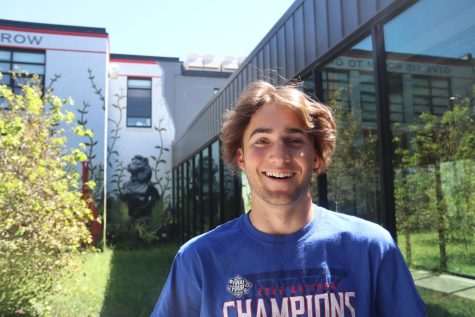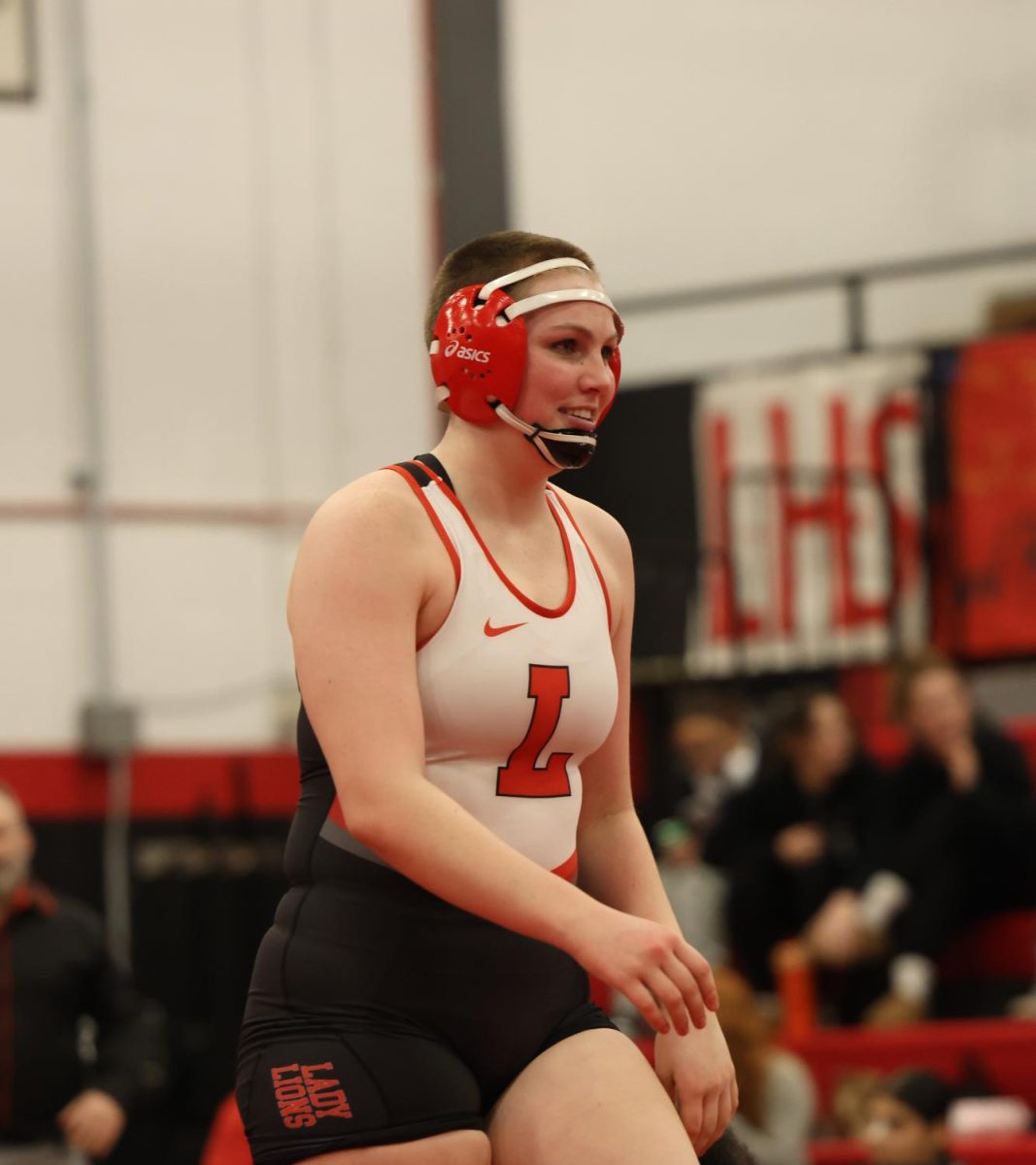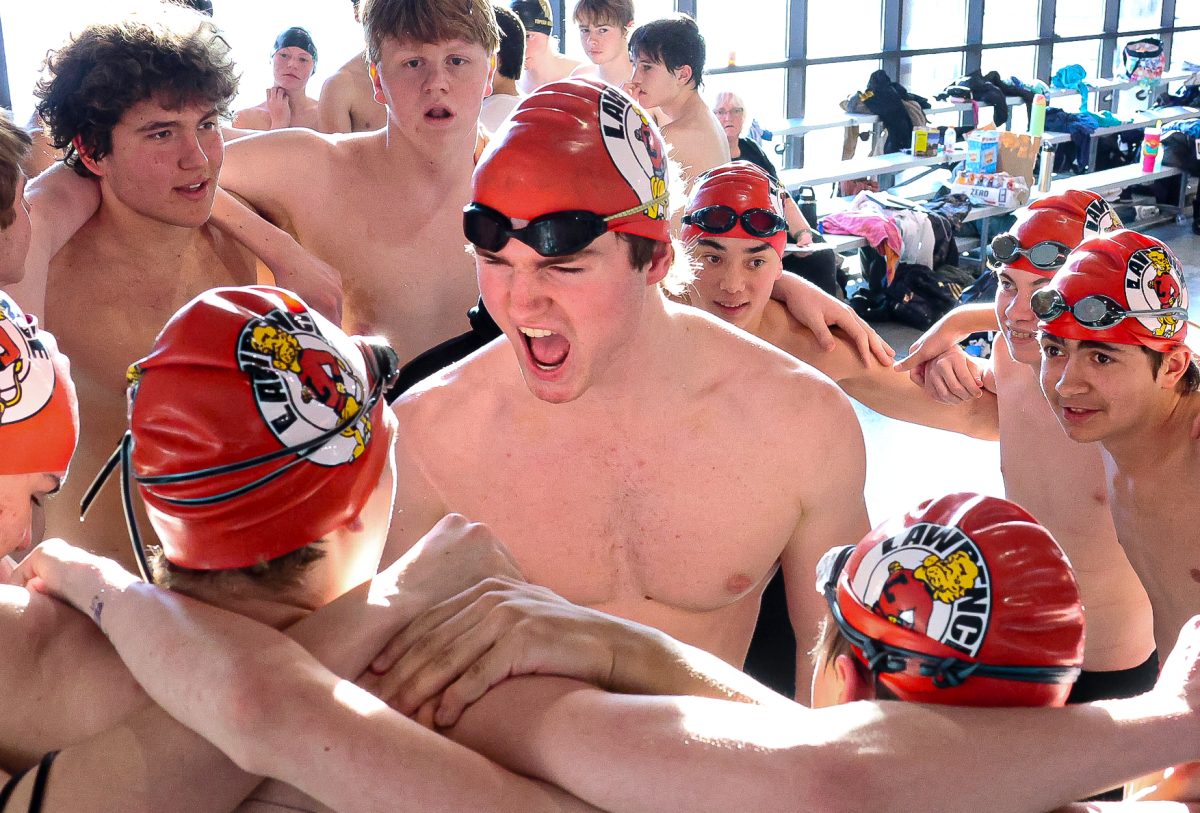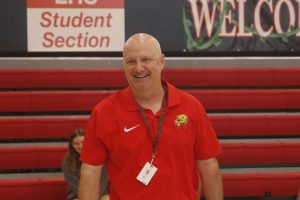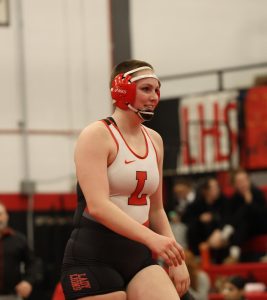Antisemitism is on the rise, and we need to stop ignoring it
It’s time to address the crisis, and educate students and staff about antisemitism
January 20, 2023
Swastikas scratched into the walls and drawn onto stalls with Sharpie and pencil did more than just damage our bathrooms.
Those images created fear.
They were horrifying on their own, but often worsened with messages, such as “I hate Jews” or “Ye was right.”
But it isn’t just the graffiti that frightens me. Comments uttered in classes or jokes told in the hallways are all the more reason to take notice of the antisemitism crisis in our nation — and in our school.
Too often, we see antisemitism as something that was left in the past. It tends to take the back seat in discussions about national concerns. But the refusal to accept that antisemitism holds the same weight today as it did more than 80 years ago allows the hateful rhetoric to continue. Unchecked, misinformation spreads and endangers lives.
And of course, it doesn’t help when one of the most popular artists in history, or a star basketball player in New York, decide to make it their personal goals to spread antisemitic remarks and conspiracies across their social media accounts, which are followed by millions.
It should come as no surprise that hatred and misinformation from Kanye West (legally “Ye”) and Kyrie Irving have a deep impact on an audience that is more impressionable than most: high schoolers. And not only that, but rather than call out antisemitism, some instead amplify those hateful remarks. For example, Fox host Tucker Carlson’s controversial interview with West came after the rapper tweeted a threat to, “go death con [sic] 3 on the Jewish people.”
In a progressive town like Lawrence, we sometimes assume we’re isolated from such hate. For us, the last thing we would expect to experience is our classmates etching antisemitic remarks or symbols into walls.
But what has happened can’t be unseen. And we can’t just ignore it, or close bathrooms to hide the hate away. And while the acts of students or words of celebrities aren’t inherently violent, they stand to provoke violence from others, and have proven to do so in the past.
In 2014, antisemitism led to the violent deaths of three people outside the Overland Park Jewish Community Center and the Village Shalom. The shooter, a Ku Klux Klan leader, targeted the center with the main motive of murdering Jewish people.
The chance of violence arising from students who engage in antisemitic talk isn’t just theoretical. History tells us we should be concerned. And the answer to the uptick in antisemitism in our school is not to shy away from talking about the incidents that happen and ignore the impact it could have on Jewish students at LHS. The answer is education.
When we fail to address and talk about global problems prevalent in our own community, we fail to support the students who are harmed. We fail to see the danger to students who are targeted, and we fail to help students on a dangerously hateful path. In a school that prides itself on inclusion and willingness to make changes to benefit all students, it is short-sighted to refuse to create an opportunity to learn when it’s clear we most need to.
Thus far, administrators say they don’t know who has etched the swastikas. But while we can’t punish someone whose identity remains unknown, that doesn’t mean we should ignore it all together.
So it is time to bring in a local Rabbi, or incorporate a voice outside of USD 497, who has experiences beyond education who could answer student questions. Someone who could discuss the impact of antisemitism on the Jewish community and fellow Jewish students.
This hatred doesn’t stem from a logical way of thinking. It comes from misinformation, lack of understanding, and most often from fear. Students love to find ways to rebel, or be funny, even when they don’t understand how they could be harming those around them. And the only way to solve that is through education.
While antisemitism continues to rise in our society, there has to be a sense of urgency. To protect students, and to educate those who have been hateful, or even those who just want to understand how the issue affects other people.
If we want our school to be better, we can make it better. When we don’t talk about something we know is wrong, we silently endorse it and allow it to continue. We have to educate, and we have to be ok with uncomfortable conversations. If we’ve done it in the past, we can do it now, and we shouldn’t be afraid of fighting back against hate, no matter the response.



